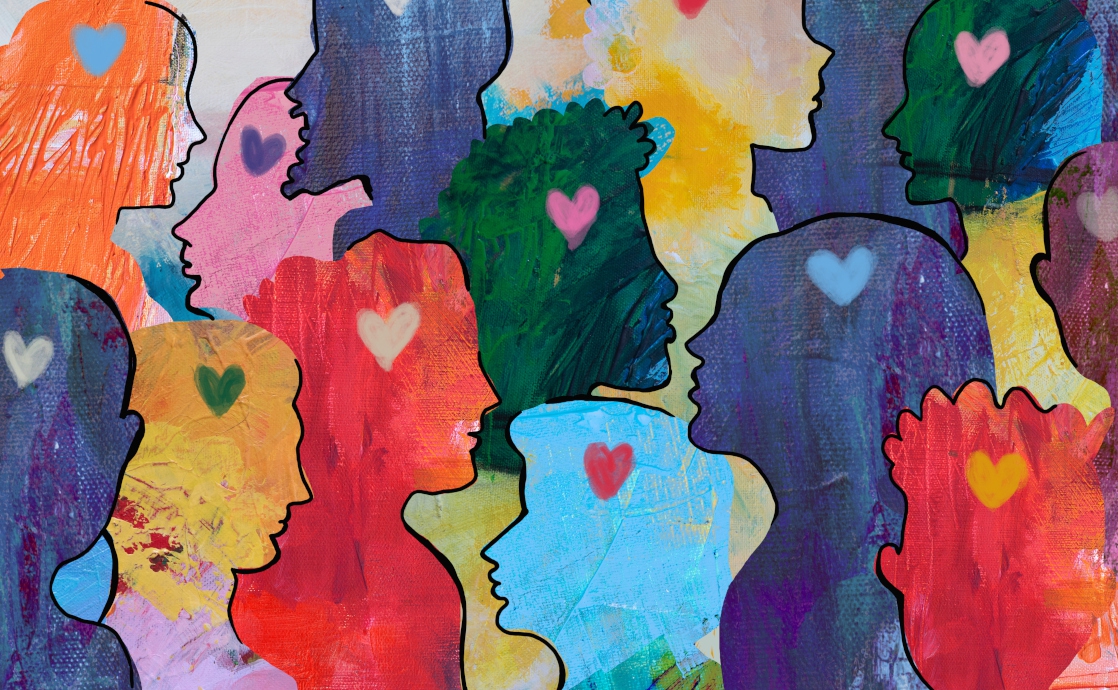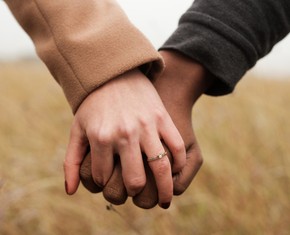The views expressed in our content reflect individual perspectives and do not represent the authoritative views of the Baha'i Faith.
You’ve probably seen the clichés, the chatter, and the listicles online: “5 Reasons to Ditch a Toxic Relationship,” or “How to Cancel Your Toxic Friend.” If you’re thinking about taking that advice, don’t.
Just to be clear, no one should suffer continued abuse or persistently demeaning and controlling behavior. If you’re continually experiencing any of those injurious things in your relationships with another person, you might want to think hard about finding an exit – or getting some professional help in an attempt to heal the relationship.
But this new, ruthless trend of labeling other people as “toxic” has now risen to ridiculous levels. In fact, it defines others as incorrigible, intractable, and insufferable, and then encourages us to write them off permanently, without doing the necessary work to repair the rift. If someone is “toxic,” the thinking goes, it’s better to jettison the relationship forever by handing it a death sentence.
RELATED: Healing Heartbreak Through True Friendship
This does lasting damage, not only to the one labeled but to the labelers. Here’s a heartfelt plea: can we please stop labeling people this way?
The True Definition of Toxicity
Let’s begin at the beginning. Webster’s defines the word “toxic” as “caused by a toxin; poisonous.”
Usually, toxins kill you, or at the very least make you seriously ill. Unless they’re homicidal, people do not attempt to take your life.
So branding others as “toxic” is not only an insult – it entirely cuts people out of your life by rendering them as hopelessly and irredeemably flawed, and removes the obligation to try to bring about a semblance of love and unity with others, which the Baha’i teachings characterize as one of our primary human duties. In his writings, Abdu’l-Baha urged everyone to make the effort to seek unity with others:
… those clouds that drift apart cannot produce the bounty of the rain, and are soon lost; a flock of sheep, once scattered, falleth prey to the wolf, and birds that fly alone will be caught fast in the claws of the hawk. What greater demonstration could there be that unity leadeth to flourishing life, while dissension and withdrawing from the others, will lead only to misery; for these are the sure ways to bitter disappointment and ruin.
This new tendency to label others as toxic seems to be everywhere now. “My ex-girlfriend – she was totally toxic,” I overheard a man say in a movie theatre line the other day. A news announcer characterized a politician as toxic last night on TV. On the internet, the ubiquitous label gets applied to just about everyone, from hyper-argumentative online trolls to those who merely agree to have a civil disagreement.
Haven’t we all done things that hurt the ones we love? None of us is perfect, and no one except the prophets has ever gone through life without injuring others. So isn’t it our duty, after recognizing the flaws in our own characters, to forgive the flaws we encounter in the characters of others? Shouldn’t we extend, as Christ and the Buddha and Baha’u’llah and every other holy messenger advised, the milk of human kindness to those who may slight or injure or demean us? Isn’t it our obligation as spiritual beings to try to transform the negativity we find in this world into something positive?
You’re Dead to Me
Recently, Kaitlyn Tiffany wrote a perceptive Atlantic Magazine article about this pandemic-level outbreak of toxicity called “That’s It. You’re Dead to Me.” In her essay she concluded “The message — implied if not always stated outright — is that other people are simply not my problem.”
This willingness to label and then ostracize and avoid people we don’t agree with can have severe consequences, not only on the ones ostracized but on those who decide on it and enforce it. Anyone who has ever been subject to this kind of backbiting and banishment will testify to its lasting damage to the heart. In a remarkable speech he gave in New York City’s Unitarian Church in 1912, Abdu’l-Baha lovingly outlined the Baha’i principles and ideals that counsel against labeling and ostracizing others:
God alone is Creator, and all are creatures of His might. Therefore, we must love mankind as His creatures, realizing that all are growing upon the tree of His mercy, servants of His omnipotent will and manifestations of His good pleasure.
Even though we find a defective branch or leaf upon this tree of humanity or an imperfect blossom, it, nevertheless, belongs to this tree and not to another. Therefore, it is our duty to protect and cultivate this tree until it reaches perfection. If we examine its fruit and find it imperfect, we must strive to make it perfect. There are souls in the human world who are ignorant; we must make them knowing. Some growing upon the tree are weak and ailing; we must assist them toward health and recovery. If they are as infants in development, we must minister to them until they attain maturity. We should never detest and shun them as objectionable and unworthy. We must treat them with honor, respect and kindness; for God has created them … In brief, all humanity must be looked upon with love, kindness and respect; for what we behold in them are none other than the signs and traces of God Himself. All are evidences of God; therefore, how shall we be justified in debasing and belittling them, uttering anathema and preventing them from drawing near unto His mercy? This is ignorance and injustice, displeasing to God; for in His sight all are His servants.
This kind, compassionate, and humane way of viewing other people brings dividends to everyone – to those who practice it and those who receive it. Rather than seeing other people as toxic and therefore beyond help, it recognizes that all of us have faults and foibles and casts a forgiving eye, not only on the problems other people have, but on our own.
RELATED: Preserving Our Mental Health After Tragic Heartbreak
Labeling others as toxic causes alienation and estrangement, and in his writings Baha’u’llah asked all humanity to do the exact opposite:
Shut your eyes to estrangement, then fix your gaze upon unity. Cleave tenaciously unto that which will lead to the well-being and tranquillity of all mankind. This span of earth is but one homeland and one habitation. It behoveth you to abandon vainglory which causeth alienation and to set your hearts on whatever will ensure harmony.
So the next time you start thinking of another person as “toxic,” you might want to re-evaluate your judgment, and, as Abdu’l-Baha counseled everyone, do your best to regard them “with love, kindness, and respect.”
You May Also Like
Comments

















The solution is way more complicated and multi-faceted than telling the abused to stay.
One of the first conditions towards healing is to call out the abusive behavior, esp by multiple people the abuser would potentially take seriously about.